Round and Square BalesRound and Square Bales
Round and Square Bales
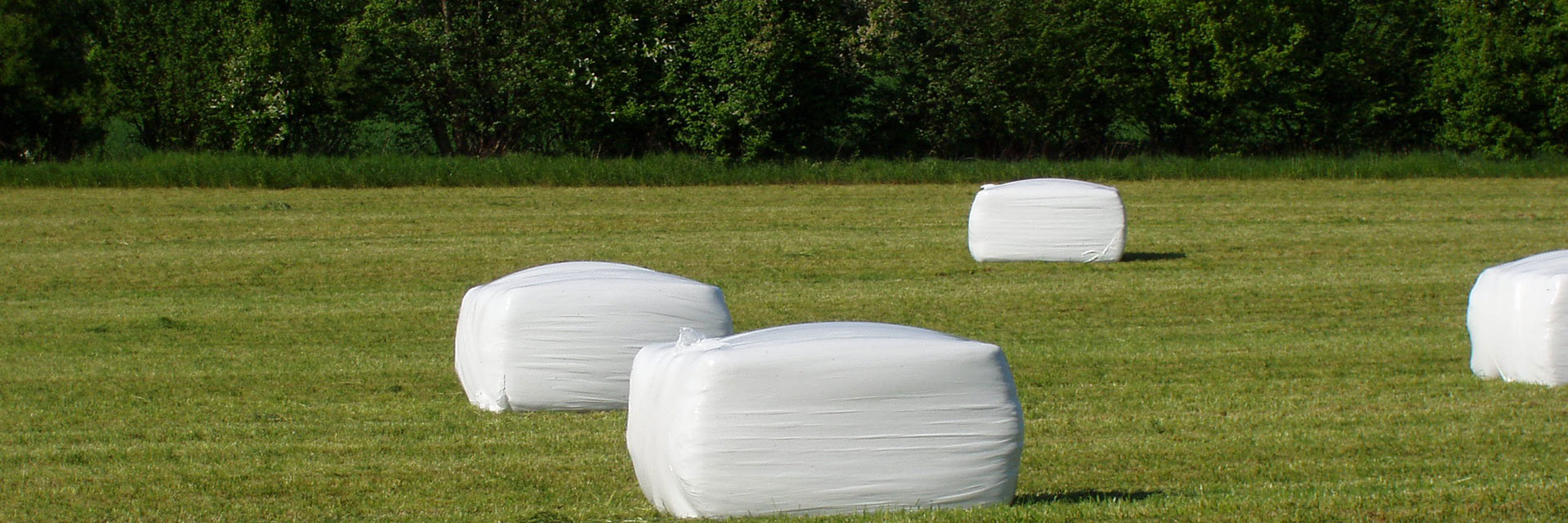
Round and Square Bales
The ensiling of grass in round or square bales is now the method of choice for many farms. In contrast to ensiling in flat silos, however, higher degrees of wilting are aimed at. Desirable are dry matter contents of 40 to 55% TS. Only in this area can high storage densities be achieved with sufficient fermentation intensity at the same time. If wilting is stronger, problems with the storage density and the air seal are to be expected. The fermentation intensity then also falls sharply, which entails a higher risk of mold growth. Below 40% DS, the risk of incorrect fermentation increases, and from 35% DS and moister, the dimensional stability of the bales is lost. This leads to problems with storage. The bales are difficult to stack and there is a risk that the film layers will be pushed apart and air will get into the bales. Particular attention should be paid to the airtight storage of the silage in the bales. The relationship between the amount of feed stored per bale and surface area is less favorable than with flat silo systems. A few centimeters of spoilage at the edge of the bale can account for up to 25% of the entire bale.
BioCool is a biological additive, which contains the specially selected, extra efficient working heterofermentative lactic acid bacteria Lactobacillus buchneri and enzymes Lactobacillus bucheri supports the natural lactic acid fermentation and simultaneously improves the aerobic stability of silages during feeding out of the clamp. Additional to lactic acid is Lactobacillus buchneri able to produce a few mould inhibitory substances. Well know are acetic acid and propylene glycole. Spoilage of silage, caused by yeasts and moulds are effectively inhibited.
BioCool is DLG-tested in group 2. The improvement of aerobic stability has been proven. It has been proved that the silage durability improves when exposed to the air.


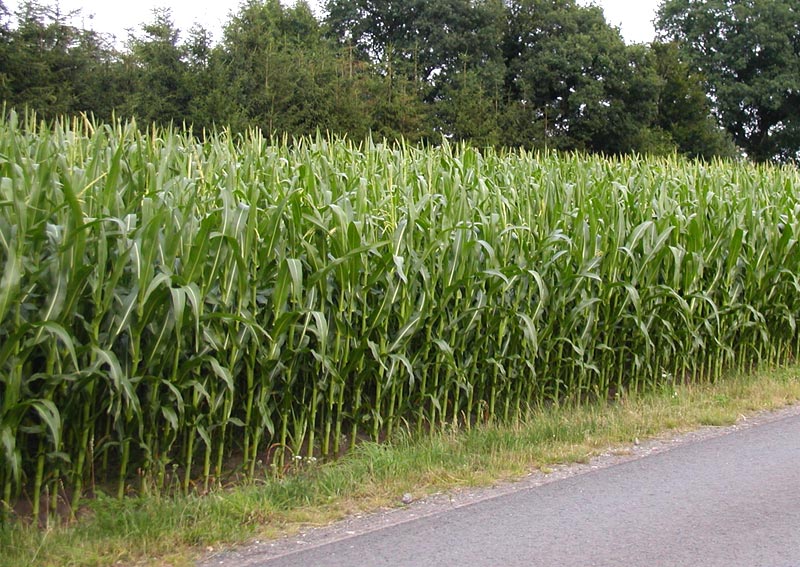
The use of BioCool is recommended with the following forage (amongst others):
BioCool
BioCool HC
Depending on dispensing possibilities, the concentration of the solution can vary.
Experiments have shown that the addition of BioCool improves aerobic durability. The treated silages were strained significantly less by yeasts. A heating up could not be observed.
Careful examination has shown that our product, when used according to the directions for use, is suited for the recommended purposes. If biological silage additives are used, then the ensilage and removal technique has to be very good. Plant cultivation errors (e.g. cutting too late) and ensilage technique errors (e.g. compression and covering) cannot be compensated. We are liable for the consistent quality of the product, not for the risks of storage and use.
Siloferm is a biological additive, which contains specially selected, extra efficient working homofermantative lactic acid bacteria. It can be applied to the silage in liquid or granulated form. The special combination of different lactic acid bacteria controls the run of fermentation effectively and accelerates it. This results in a higher quality of treated silage and a minimization of the fermentation losses. Silages are more palatable, which results in a better feed intake.
Siloferm is DLG-tested group 1b, 4a, 4b, 4c (milk). The improvement of silage quality and animal performance (more milk) has been proven.
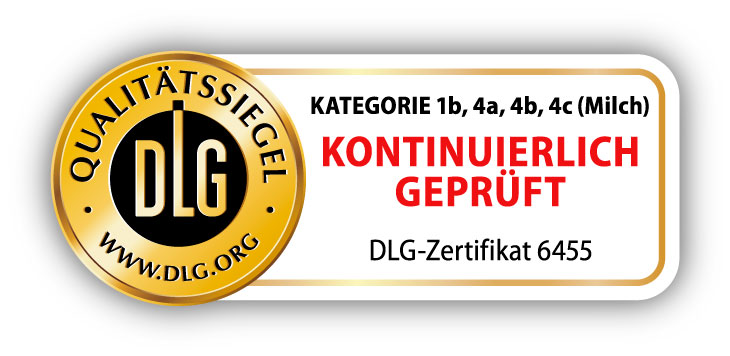
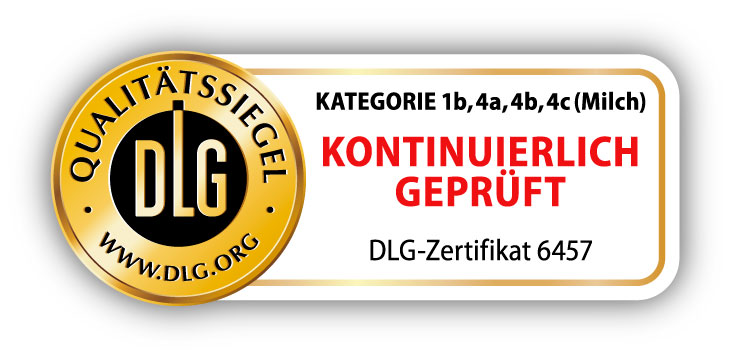
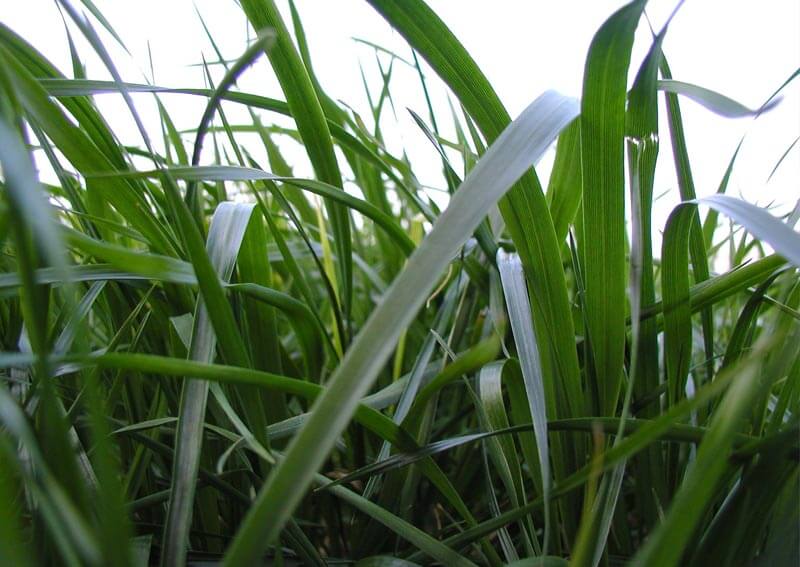
The use of Siloferm is recommended with the following forage:
Siloferm
10 g Siloferm per tonne forage
100 g per sachet, enough for 10 tonne ensilage goods or 14 - 17 m³ silo space.
Dissolve one sachet of Siloferm into 20 litres of water stirring continuously and spray on 2 litres/ tonne forage.
Siloferm HC
2,24 g pellets per tonne forage
280 g per bag, enough for 125 tonne ensilage goods or 75 - 80 m³ silo space
Dissolve one sachet in 2,5 litre water and apply 20 ml / ton silage.
Tests have shown that the process of lactic acid fermentation can be influenced positively through the correct use of Siloferm.
Treated silages also demonstrate better digestibility and a higher energy concentration, which, in turn, results in improved animal performance.
Digestibility of the organic substance (%)
| Test | untreated | Siloferm |
| 1 | 70,9 | 73,3 |
| 2 | 71,5 | 72,1 |
| 3 | 72,3 | 73,9 |
| 4 | 76,4 | 79,9 |
33% dry matter
| untreated | Siloferm | |
| pH value | 4,38 | 4,22 |
| lactic acid (% dry matter) | 8,94 | 9,95 |
| acetic acid (% dry matter) | 2,14 | 2,16 |
43% dry matter
| untreated | Siloferm | |
| pH value | 4,51 | 4,29 |
| lactic acid (% dry matter) | 7,44 | 8,37 |
| acetic acid (% dry matter) | 1,63 | 0,99 |
54% dry matter
| untreated | Siloferm | |
| pH value | 4,77 | 4,38 |
| lactic acid (% dry matter) | 4,76 | 6,91 |
| acetic acid (% dry matter) | 0,98 | 0,59 |
Careful examination has shown that our product, when used according to the directions for use, is suited for the recommended purposes. If biological silage additives are used, then the ensilage and removal technique has to be very good. Plant cultivation errors (e.g. cutting too late) and ensilage technique errors (e.g. compression and covering) cannot be compensated. We are liable for the consistent quality of the product, not for the risks of storage and use.